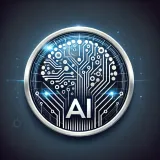The Hidden Dangers of AI: A Deep Dive into Algorithmic Bias

Can a machine inherit the biases of its creators? The answer is a resounding yes, and the implications are profound. As we increasingly delegate decisions — from hiring practices to loan approvals — to algorithms, a pressing question emerges: are these technologies fair, or do they propagate the prejudices of their human architects? Artificial intelligence (AI) systems are lauded for their efficiency and impartiality, but beneath the veneer of objectivity, there exists a hidden layer of bias that is far from benign. These biases can lead to real-world impacts that disproportionately affect marginalized communities, raising ethical concerns that are as complex as the algorithms themselves. #### The Origin of Algorithmic Bias At the heart of the issue is the data used to train AI systems. This data often reflects historical inequalities: it can include demographic disparities, socio-economic factors, and even the subjective judgements of those who collect it. When an AI system learns from flawed data, it inevitably learns to perpetuate these flaws. For example, in 2019, a leading tech giant came under fire when its hiring algorithm was found to favor male candidates over female candidates, simply because it was trained on resumes submitted to the company over the past decade, predominantly by men. #### Real-World Consequences The consequences of algorithmic bias are not trivial. In sectors such as law enforcement, biased algorithms can lead to increased surveillance of specific ethnic groups. In finance, they can deny loans to eligible applicants because they come from a zip code which the model unjustly associates with high risk. These aren't just hypotheticals; they are documented realities that affect thousands of lives. #### Technological Responses and Remedies Recognizing the problem is the first step towards a solution. Tech companies and researchers are actively working to make AI systems more equitable. Techniques like de-biasing the data or redesigning algorithms to be cognizant of fairness are on the rise. For instance, OpenAI has developed tools that help identify and mitigate bias in machine learning models, providing a clearer path toward equity. #### Ethical Considerations and Future Outlook As AI becomes more integrated into our lives, its ethical implications grow more significant. There's a burgeoning field of AI ethics focused on ensuring these technologies are developed and deployed in a manner that respects human rights and dignity. Universities and think tanks are not just asking how AI can be used, but how it should be used, advocating a shift from a solely performance-driven approach to one that prioritizes societal impact. #### Conclusion: A Call for Vigilance and Engagement The evolution of AI poses as much a societal challenge as a technological one. As these systems become the arbiters of more facets of daily life, the push for algorithms that are not only intelligent but also impartial becomes increasingly urgent. For everyone from technologists to policymakers to everyday citizens, the message is clear: stay informed, stay critical, and engage in the push for AI that amplifies the best of humanity, without perpetuating its biases. This exploration into algorithmic bias is not just about critiquing technology but is a broader call to action. It is an invitation to shape a future where AI serves all of humanity equitably. As these conversations continue, they will determine the trajectory of technology and its role in our lives, ensuring AI serves as a tool for empowerment, not exclusion.




